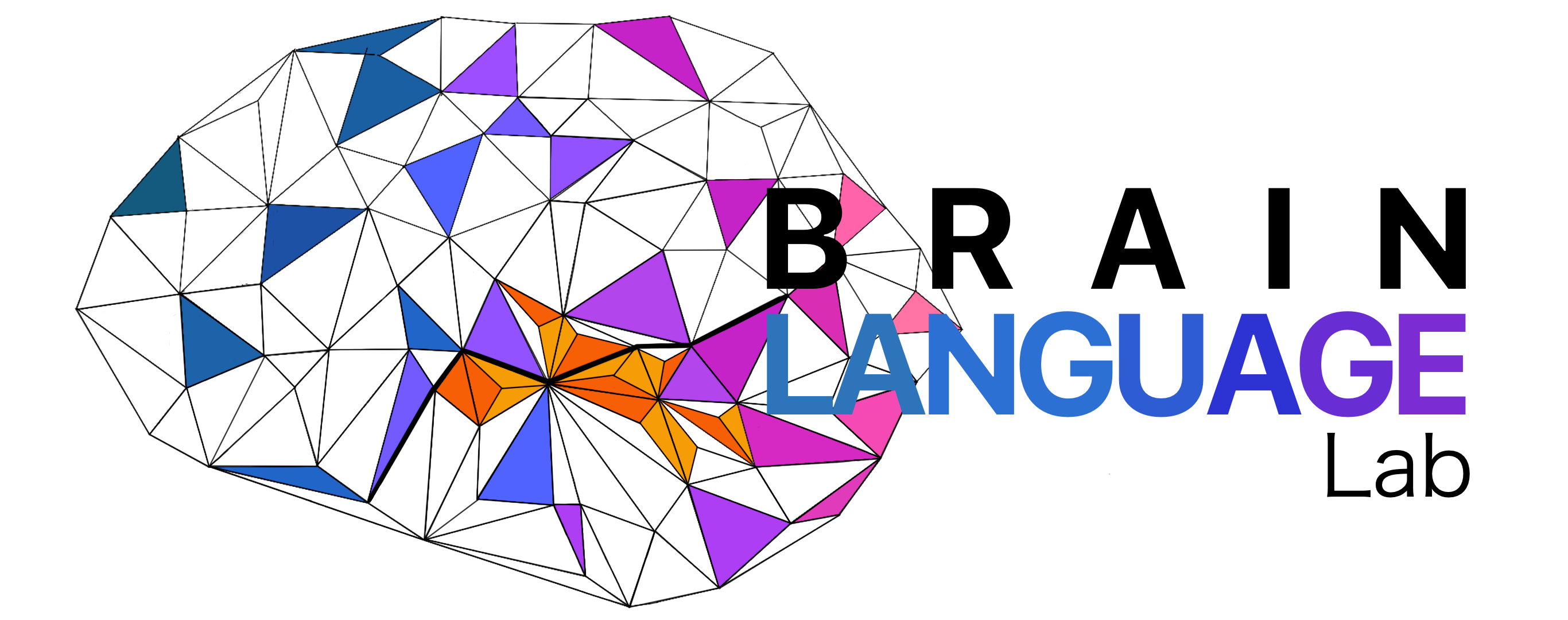 Prior to joining the Brain and Language Lab, Olga was a post-doctoral researcher at the University of California, San Francisco and University of Connecticut in the US. She obtained her PhD in Linguistics at Leiden University in the Netherlands (2017), following a BA (University of Wroclaw, Poland) and MA (Leiden University) degrees in Dutch Studies and an MA in Linguistics from Vrije Universiteit Brussel in Belgium. Her main interests are individual differences in (second) language acquisition from a neurocognitive perspective and the impact of brain development and complex environment on language skills.
Prior to joining the Brain and Language Lab, Olga was a post-doctoral researcher at the University of California, San Francisco and University of Connecticut in the US. She obtained her PhD in Linguistics at Leiden University in the Netherlands (2017), following a BA (University of Wroclaw, Poland) and MA (Leiden University) degrees in Dutch Studies and an MA in Linguistics from Vrije Universiteit Brussel in Belgium. Her main interests are individual differences in (second) language acquisition from a neurocognitive perspective and the impact of brain development and complex environment on language skills.Her PhD focused on neural mechanisms and brain structures underlying successful foreign language learning. She investigated neural correlates of the analytical component of language aptitude using functional MRI, diffusion imaging and EEG. More recently, she was involved in a longitudinal neuroimaging study using cross-linguistic data to understand the impact of multilingualism on children’s cognitive and neural outcomes.
Email: Olga [dot] Kepinska [at] univie [dot] ac [dot] at
Previous positions: 2017 – 2020 Postdoctoral Scholar, Department of Psychiatry and Behavioral Sciences, UCSF Weill Institute for Neuroscience, University of California, San Francisco (USA) 2019 – 2020 Visiting Postdoctoral Scholar, Department of Psychological Sciences, University of Connecticut (USA) 2017 Post-doctoral Researcher, Leiden University Centre for Linguistics & Leiden Institute for Brain and Cognition, Leiden (the Netherlands) 2012 – 2017 PhD Candidate, Leiden University Centre for Linguistics & Leiden Institute for Brain and Cognition, Leiden (the Netherlands)
Previous education: 2017 PhD in Experimental Linguistics (Leiden University, the Netherlands) 2012 MA in Advanced Studies in Linguistics (Vrije Universiteit Brussel, Belgium) 2011 Postgraduate Studies in English Translation (Wrocław University, Poland) 2010 MA in Dutch Studies (Leiden University, the Netherlands) 2008 BA Dutch Philology (Wrocław University, Poland)
Publications and work in progress:
Jones, C., Collin, E., Kepinska, O., Hancock, R., Caballero, J., Zekelman, L., Vandermosten, M., Hoeft, F. (in preparation), Auditory processing of children in dual-language immersion programs.
Kepinska, O., Hoeft, F. (in preparation), Effects of linguistic diversity on L1 lexical processing and vocabulary development in kindergartners, https://doi.org/10.17605/OSF.IO/7WQ3K.
Caballero, J., Vukovic, N., Kepinska, O., Voeten, C., Hoeft, F. (in preparation), Multilingualism and development of phonological skills in kindergartners, https://doi.org/10.17605/OSF.IO/VZE93.
Li, H., Kepinska, O., Caballero, J. N., Zekelman, L., Marks, R. A., Uchikoshi, Y., Kovelman, I., Hoeft, F. (under review). Decoding the role of the cerebellum in the early stages of reading acquisition. https://doi.org/10.31234/osf.io/4pn98
Hennessey, E-M., Kepinska, O., Haft, S.L., Chan, M., Sunshine, I., Jones, C., Hancock, R., Hoeft, F., (2020), Hair cortisol and dehydroepiandrosterone concentrations: associations with executive function in early childhood. Biological Psychology, 155, 107946. https://doi.org/10.1016/j.biopsycho.2020.107946
Marks, R.A., Kovelman, I., Kepinska, O., Oliver, M., Xia, Z., Haft, S.L., Zekelman, L., Uchikoshi, Y., Hancock, R., Hoeft, F., (2019). Spoken language proficiency predicts print-speech convergence in beginning readers. NeuroImage 116021. https://doi.org/10.1016/j.neuroimage.2019.116021.
Haft, S. L., Kepinska, O., Caballero, J. N., Carreiras, M., & Hoeft, F. (2019). Attentional fluctuations, cognitive flexibility, and bilingualism in kindergarteners. Behavioral Sciences, 9(5), 58. https://doi.org/10.3390/bs9050058.
Struys, E., Surmont, J., Van de Craen, P., Kepinska, O., Van den Noort, M., (2019). Bilingual language control across modalities. Linguistic Approaches to Bilingualism, https://doi.org/10.1075/lab.17020.str, [Citations: 2].
Struys, E., Woumans, E., Nour, S., Kepinska, O., van den Noort, M., (2018). A domain-general monitoring account of language switching in recognition tasks: Evidence for adaptive control. Bilingualism 1–18. https://doi.org/10.1017/S1366728918000342.
Kepinska, O., de Rover, M., Caspers, J., & Schiller, N. O. (2018) Connectivity of the hippocampus and Broca’s area during acquisition of a novel grammar. NeuroImage, 165, 1-10, [Citations: 11].
Kepinska, O., Pereda, E., Caspers, J., & Schiller, N. O. (2017) Neural oscillatory mechanisms during novel grammar learning underlying language analytical abilities. Brain and Language, 175, 99-110.https://doi.org/10.1016/j.bandl/2017.10.003.
Kepinska, O., Lakke, E. A. J. F., Dutton, E. M., Caspers, J., & Schiller, N. O. (2017) The perisylvian language network and language analytical abilities. Neurobiology of Learning and Memory, 144, 96-101, [Citations: 3].
Kepinska, O., de Rover, M., Caspers, J., & Schiller, N. O. (2017) On neural correlates of individual differences in novel grammar learning: An fMRI study. Neuropsychologia, 98, 156–168. http://doi.org/10.1016/j.neuropsychologia.2016.06.014.
Kepinska, O., de Rover, M., Caspers, J., & Schiller, N. O. (2017) Whole-brain functional connectivity during acquisition of novel grammar: distinct functional networks depend on language learning abilities. Behavioural Brain Research, 320, 333–346. http://dx.doi.org/10.1016/j.bbr.2016.12.015.
Kepinska, O., & Schiller, N. O. (2016) Possible neural oscillatory mechanisms underlying learning. Cognitive Neuroscience, 1–2. doi:10.1080/17588928.2016.1205578.
Kepinska, O. & Struys, E. (2012) Neural correlates of language aptitude during a lexical semantic categorization task. In Botinis & Antonis (eds.) Proceedings of the International Conference of Experimental Linguistics ExLing 2012, pp.73-76.
Kepinska O. & Caspers, J. (2012) Invloed van T1-klemtoonsystematiek op de klemtoonproductie in NT2. In: Bossers B. (Ed.) Vakwerk 8, Achtergronden van de NT2-lespraktijk. Amsterdam: Beroepsvereniging van docenten Nederlands als Tweede Taal. 57-72.
Caspers, J. & Kepinska, O. (2011) The influence of word-level prosodic structure of the mother tongue on production of word stress in Dutch as a second language. In W.S. Lee & E. Zee (eds.) Proceedings of the 17th International Congress of Phonetic Sciences, 420-423.
